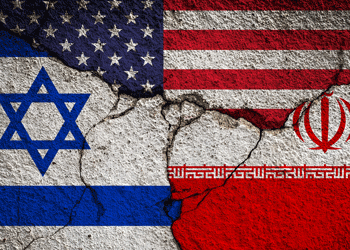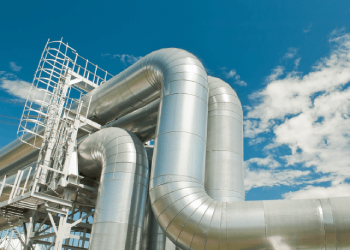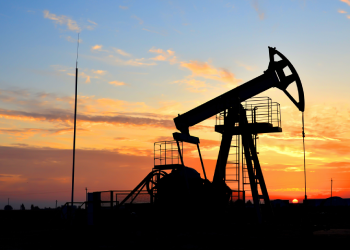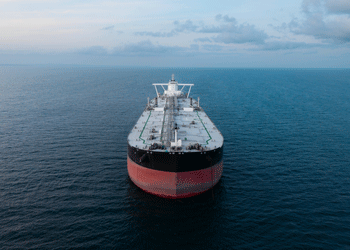- All the latest news, data, and market intelligence across MENA at your fingerprints
- First-hand updates and inside information on projects, clients and competitors that matter to you
- 20 years' archive of information, data, and news for you to access at your convenience
- Strategize to succeed and minimise risks with timely analysis of current and future market trends
Latest News
-
 Alec resumes project operations across the UAE
Alec resumes project operations across the UAE5 March 2026
Register for MEED’s 14-day trial access
UAE-based construction firm Alec has resumed on-site and in-office operations across its UAE projects from 4 March.
In a statement, the company said that it is working closely with clients to ensure a prompt and safe return to full-scale activity.
The move follows a temporary work-from-home policy introduced across the company’s UAE operations in response to ongoing events, as Alec Holdings reaffirmed its commitment to protecting its workforce while continuing to deliver in clients’ best interests.
During the same period, the company said its operations in Saudi Arabia remained fully operational.
Alec also confirmed it remains on track to hold its first Annual General Assembly meeting post-listing on 24 March, in line with regulatory guidelines.
Barry Lewis, CEO of Alec Holdings, said the company’s “priority is, and always will be, the safety and security of our workforce”, adding that Alec was grateful to clients for their support.
“That trust has been built over decades of delivering on our promises, and it is something we value deeply,” he said.
Lewis added that the company would continue to focus on transparency and close collaboration with clients and partners to maintain safety across sites and offices.
Lewis also pointed to Alec’s investments in digital collaboration platforms, workforce management systems and enhanced security protocols, describing them as “tried and tested” capabilities that have helped keep projects on track while protecting employees.
He said the company remained confident in the resilience of its operations and its ability to adapt responsibly as circumstances evolve.
 READ THE MARCH 2026 MEED BUSINESS REVIEW – click here to view PDF
READ THE MARCH 2026 MEED BUSINESS REVIEW – click here to view PDFRiyadh urges private sector to take greater role; Chemical players look to spend rationally; Economic uptick lends confidence to Cairo’s reforms.
Distributed to senior decision-makers in the region and around the world, the March 2026 edition of MEED Business Review includes:
> RAMADAN: Data disproves the Ramadan slowdown story> INDUSTRY REPORT: Chemicals producers look to cut spending> INDUSTRY REPORT: Global petrochemical project capex set to rise until 2030> MARKET FOCUS: Egypt’s crisis mode gives way to cautious revival> LEADERSHIP: Delivering Saudi Arabia’s next phase of rail growth> INTERVIEW: Abu Dhabi’s Enersol charts acquisitions pathTo see previous issues of MEED Business Review, please click herehttps://image.digitalinsightresearch.in/uploads/NewsArticle/15872176/main3704.jpg -
 QatarEnergy issues force majeure to customers
QatarEnergy issues force majeure to customers5 March 2026
Register for MEED’s 14-day trial access
QatarEnergy has issued force majeure to customers who have been affected by its decision to stop production and shipments of liquefied natural gas (LNG) and associated products.
“QatarEnergy values its relationships with all of its stakeholders and will continue to communicate the latest available information,” the state enterprise said in a statement on 4 March.
QatarEnergy announced its decision to halt production of LNG and associated products on 2 March due to military attacks on the company’s operating facilities in Ras Laffan Industrial City and Mesaieed Industrial City in Qatar.
The following day, the company said it was stopping output of products in the downstream energy value chain, including urea, polymers, methanol, aluminium and other products.
The state enterprise did not blame Iran for the attacks in either of its statements, but it is understood that its facilities have been hit by drones and/or missiles launched by Tehran, as it retaliates against Israel, the US and their military bases in the GCC states, further escalating the ongoing conflict.
QatarEnergy currently has a nameplate LNG production capacity of 77.5 million tonnes a year (t/y), with all its processing trains and export infrastructure located in Ras Laffan Industrial City, which lies about 90 kilometres to the north of Doha.
In Mesaieed Industrial City, situated around 45km south of Doha, QatarEnergy operates crude oil refining facilities, including natural gas liquids (NGL) units, as well as petrochemical production complexes and other units in the hydrocarbon value chain.
ALSO READ:
https://image.digitalinsightresearch.in/uploads/NewsArticle/15872121/main0755.jpg -
 Local firm wins Jeddah stormwater contract
Local firm wins Jeddah stormwater contract5 March 2026
Saudi Arabia’s Alkhorayef Water & Power Technologies (AWPT) has won a five-year contract from Jeddah Municipality for stormwater network services in the city.
The contract covers the operation and cleaning of stormwater and surface water networks in the airport’s sub-municipality area of Jeddah, AWPT said in a statement to the Saudi stock exchange.
Valued at $25m, the contract forms part of ongoing efforts by Saudi municipalities to maintain and upgrade urban stormwater infrastructure as cities expand and face increasing pressure on drainage systems.
According to regional projects tracker MEED Projects, Jeddah Municipality awarded two major stormwater infrastructure contracts in 2025.
The awards covered phases one and two of the King Abdullah Road-Falasteen Road (KAFA) tunnel project, each valued at about $175m.
The contracts were awarded to Saudi contractor Thrustboring Construction Company for the construction of large-diameter stormwater drainage tunnels. US-based Aecom is the consultant for the project.
As MEED previously reported, the contracts for the three-year scheme were initially tendered in 2024.
In January, AWPT won another contract with state-owned utility National Water Company (NWC) to operate and maintain water assets in Tabuk City.
The scope of work includes the operation and maintenance of water networks, pump stations, wells, tanks and related facilities over a 36-month period.
 READ THE MARCH 2026 MEED BUSINESS REVIEW – click here to view PDF
READ THE MARCH 2026 MEED BUSINESS REVIEW – click here to view PDFRiyadh urges private sector to take greater role; Chemical players look to spend rationally; Economic uptick lends confidence to Cairo’s reforms.
Distributed to senior decision-makers in the region and around the world, the March 2026 edition of MEED Business Review includes:
> RAMADAN: Data disproves the Ramadan slowdown story> INDUSTRY REPORT: Chemicals producers look to cut spending> INDUSTRY REPORT: Global petrochemical project capex set to rise until 2030> MARKET FOCUS: Egypt’s crisis mode gives way to cautious revival> LEADERSHIP: Delivering Saudi Arabia’s next phase of rail growth> INTERVIEW: Abu Dhabi’s Enersol charts acquisitions pathTo see previous issues of MEED Business Review, please click herehttps://image.digitalinsightresearch.in/uploads/NewsArticle/15870416/main.jpg -
 US-Israel attack on Iran incurs heavy regional price
US-Israel attack on Iran incurs heavy regional price5 March 2026

Register for MEED’s 14-day trial access
The joint US-Israeli military campaign against Iran, launched on 28 February under operations codenamed Epic Fury and Operation Roaring Lion, has pulled the GCC into the most destabilising regional confrontation in a generation.
Six days into the crisis, the scale of collateral damage to Gulf capitals is becoming fully visible in damaged infrastructure, grounded aircraft, shuttered ports, halted energy production and a darkening investment climate.
Every member of the GCC has absorbed Iranian missile or drone strikes, despite none having launched offensive operations against Tehran.
In contrast to the restrained signalling from Iran during the 12-day war in June 2025 – when it choreographed its Gulf retaliation to a single base in Qatar – this campaign represents a deliberate effort to punish the US and states harbouring its assets.
By 4 March, Iran had fired 186 ballistic missiles at the UAE alone, according to the UAE Ministry of Defence, with all but one intercepted, but with lethal debris falling across Abu Dhabi and Dubai. Of 812 drones launched toward the UAE, 57 made impact.
Across the Gulf, however, the overall damage tallied so far is stark, particularly at US military bases. Iranian volleys have been directed with special intensity at the US Navy’s 5th Fleet headquarters in Bahrain and the Al-Udeid airbase in Qatar, alongside every US airbase and associated radar and satellite communications system across the region.
Strangled logistics
The Strait of Hormuz – the 33-kilometre-wide channel between Iran and Oman – was also declared closed to traffic by the Islamic Revolutionary Guard Corps (IRGC) the same day the US-Israeli attacks began.
Closing the strait, through which approximately 20 million barrels of crude oil pass every day, has been a perennial Iranian threat, and now Tehran is making good on it.
The strait is the sole maritime exit for much of the energy exported from the Gulf states, making up around a fifth of all seaborne oil traded globally in total.
At least five vessels have been struck so far in enforcement of the blockade, but the real impediment to ships is now the withdrawal of war risk cover by insurance underwriters – leaving ships inside and outside of the strait stranded.
Oil prices have responded accordingly, with Brent crude rising above $80 a barrel – up from closer to $60 – and with analysts placing $100 a barrel firmly back on the table if the disruption runs for more than a few weeks.
LNG shutdown
If the Hormuz closure has convulsed oil markets, the direct attack on Qatar’s energy infrastructure has delivered a separate and arguably more structurally significant blow.
Iranian drones struck QatarEnergy’s facilities at both Ras Laffan Industrial City and Mesaieed Industrial City, forcing a complete halt to all liquefied natural gas (LNG) production and associated output.
Qatar, which operated 14 LNG trains with a combined annual capacity of 77 million tonnes – accounting for roughly 20% of global LNG trade – now operates none. Doha, incensed, has cut ties with Iran.
European benchmark gas futures meanwhile jumped almost 50% within hours of the announcement. Asian LNG spot prices rose by more than a third. Country-level squeezes have been even harder, with gas prices spiking by 93% in the UK, for example.
Qatari production had been filling the void left in Europe by its boycott of Russian gas, so its halting of production now places European energy stocks under significant stress. Asian buyers, including Bangladesh, India and Pakistan, will also be feeling the strain.
Regional trade risk
The same war risk exclusions that have grounded the tanker fleet apply with equal force to container shipping, bulk carriers and general cargo vessels – extending the disruption beyond energy into every category of goods that moves through Gulf ports.
And the ports themselves are also in jeopardy. Jebel Ali in Dubai – the region’s busiest port – was temporarily closed after fire broke out from debris falling from missile interceptions overhead. Other regional ports have also seen various suspensions.
The world’s major container carriers have also drawn their own conclusions. MSC, Maersk, Hapag-Lloyd and CMA CGM have all halted Hormuz crossings entirely.
Importers across the Gulf – a region that is overwhelmingly dependent on seaborne trade for food, consumer goods, construction materials and industrial inputs – face costly re-routing.
Vessels are discharging Gulf-bound containers at Salalah in Oman, Khor Fakkan, Sohar and Duqm, from where onward delivery might be arranged overland. Spot freight rates for Gulf-destined cargo are in turn rising sharply as feeder capacity is overwhelmed.
Travel under assault
The Gulf’s aviation hubs have also been brought to a relative standstill.
A drone strike on Dubai International, the busiest airport on earth for international travel, was the most dramatic incident, but several airports have been hit and sweeping airspace closures have grounded all but a handful of flights over the Gulf.
On the worst day so far, more than 1,500 flights to or from Middle Eastern destinations were cancelled. The broader long-haul linkage through the Gulf from Europe to Asia has also been severed, forcing international legs to reroute away from the Gulf corridor.
Drone and shrapnel strikes on luxury hospitality projects in the region have meanwhile dealt a heavy blow to the GCC’s touristic safe-haven status. The region’s busy meetings, incentives, conferences and exhibitions (MICE) calendar is in disarray.
Gulf tourism entered 2026 in a strong position. Regional travel bookings had reached close to $101bn – 23% above pre-pandemic levels. Luxury hotel occupancy across Dubai, Abu Dhabi, Doha and Riyadh had set successive records through the first two months of the year. That momentum has been destroyed inside of a week.
Tourism Economics projects a fall in Middle East travel arrivals of around 11% year-on-year even in an optimistic scenario where the conflict resolves within weeks – meaning 23 million fewer visitors and a $34bn contraction in tourism spending.
If the conflict runs for two months, the projected decline steepens to 27%, with up to 38 million lost arrivals and $56bn in foregone receipts.
Long-term risks
The IMF had projected GDP growth of about 4% across the six GCC economies in 2026, driven substantially by non-oil diversification and fuelled by sustained inflows of foreign capital, foreign talent and foreign visitors.
Each of those flows is now disrupted, and some portion of the disruption will outlast the immediate security situation. Businesses could also restructure themselves to mitigate for elevated scenario of future regional risk.
The GCC states find themselves in a position of extraordinary and largely undeserved exposure. They did not initiate this conflict, and several of them invested heavily in diplomatic outreach and mediation between concerned parties.
The region is nevertheless absorbing the consequences.
The preferred Gulf instruments of mediation, back-channel diplomacy and economic persuasion have been rendered irrelevant by the speed and scale of events.
The region’s airlines, ports, refineries, LNG complexes, hotels, conference centres, stock exchanges and carefully constructed global image are all paying a price set by decisions made elsewhere. And the bill is still running.
Investors will reassess, and the governments of the GCC now face the question of how to restore peace and order in a region being actively contested militarily by the US.
 READ THE MARCH 2026 MEED BUSINESS REVIEW – click here to view PDF
READ THE MARCH 2026 MEED BUSINESS REVIEW – click here to view PDFRiyadh urges private sector to take greater role; Chemical players look to spend rationally; Economic uptick lends confidence to Cairo’s reforms.
Distributed to senior decision-makers in the region and around the world, the March 2026 edition of MEED Business Review includes:
> RAMADAN: Data disproves the Ramadan slowdown story> INDUSTRY REPORT: Chemicals producers look to cut spending> INDUSTRY REPORT: Global petrochemical project capex set to rise until 2030> MARKET FOCUS: Egypt’s crisis mode gives way to cautious revival> LEADERSHIP: Delivering Saudi Arabia’s next phase of rail growth> INTERVIEW: Abu Dhabi’s Enersol charts acquisitions pathTo see previous issues of MEED Business Review, please click herehttps://image.digitalinsightresearch.in/uploads/NewsArticle/15859120/main.gif -
 Iraq hit by nationwide electricity blackouts
Iraq hit by nationwide electricity blackouts5 March 2026
Register for MEED’s 14-day trial access
Iraq has been hit by electricity blackouts, which impacted all of the country’s provinces, according to a statement issued by the country’s Electricity Ministry.
The blackouts initially struck on 4 March, and the ministry has since said that they were triggered by a “sudden drop in gas supplies to the Rumaila power plant” in the southern province of Basra.
This led to a rapid loss of 1,900MW, which triggered the nationwide grid failure.
The Electricity Ministry said that work was under way to gradually restore power.
Iraq’s oil and gas sector is facing mounting challenges amid the US and Israel’s ongoing war with Iran.
In the south of the country, oil exports have been paralysed by the closure of the Strait of Hormuz, and, in the country’s northern region of Iraqi Kurdistan, exports via the Iraq-Turkiye Pipeline have fallen to zero.
The closure of export routes has led to production stopping at some of the country’s biggest oil fields.
This has limited the country’s ability to produce the associated natural gas that is gathered during oil production and used to fuel the country’s power stations.
https://image.digitalinsightresearch.in/uploads/NewsArticle/15869530/main.png -
 Iraq prepared a four-part plan for its emergency oil shutdown
Iraq prepared a four-part plan for its emergency oil shutdown5 March 2026

Register for MEED’s 14-day trial access
Iraq had prepared a sweeping four-part “emergency plan” for a large-scale oil field shutdown in order to deal with the closure of the Strait of Hormuz, according to an internal document obtained by MEED.
The document shows that on 3 March, Abdul Karim, the director general of state-owned Basra Oil Company (BOC), wrote to the Iraqi Oil Ministry’s deputy minister for extraction seeking approval to implement the plan.
In the correspondence, Karim said that the plan was previously “discussed and presented to the leadership of the oil sector”.
He added: “Due to the lack of tanker availability starting tomorrow, export operations from our oil storage facilities will stop.”
The plan consists of four phases, starting with the complete shutdown of nine fields, which was due to be fully implemented on 3 March.
The nine fields due to be closed were:
- West Qurna-1
- Ratawi
- Gharraf
- Majnoon
- Rumaila South
- Luhais
- Tuba
- Subba
- Hadba
The second phase of the plan involves reducing production at Iraq’s Halfaya field by 50%.
The plan aims to temporarily maintain the operation of the natural gas liquids (NGL) plant at the field.
This part of the plan was also scheduled to be fully implemented on 3 March.
The third phase of the plan was focused on the “complete shutdown of field production” at the West Qurna-2 field.
The plan notes that some oil will be retained at the field “to sustain electricity generation”. No date is given for the completion of the third phase of the plan.
The fourth phase of the plan involves reducing production at the Faihaa field by 50%.
The plan notes that sufficient production will be maintained to sustain the central processing facility (CPF) gas project at the site.
The fourth phase of the plan was scheduled to be fully implemented on 4 March 2026.
The correspondence also noted that “in the event that heavy crude exports completely stop, Maysan fields will be fully shut down”.
Karim also said that, at the time, the current oil storage capacity was 6,350 thousand barrels, with a total available space of 3,700 thousand barrels.
Of the 3,700 thousand nameplate capacity available, 1,300 thousand barrels of spare capacity in Tuba could not be utilised because it could collapse the receiving jetties inside the facility.
He also pointed out that the production cuts did not include the North Rumaila field and the Zubair field in order to maintain gas processing rates.
Iraq’s oil and gas sector is facing mounting challenges amid the US and Israel’s ongoing war with Iran.
In the south of the country, oil exports have been paralysed by the closure of the Strait of Hormuz, and, in the country’s northern region of Iraqi Kurdistan, exports via the Iraq-Turkiye Pipeline have fallen to zero.
On 2 March, Iran’s Revolutionary Guard Corps said the Strait of Hormuz is closed and warned that any vessel attempting to pass through will be attacked.
With inputs from Indrajit Sen
 READ THE MARCH 2026 MEED BUSINESS REVIEW – click here to view PDF
READ THE MARCH 2026 MEED BUSINESS REVIEW – click here to view PDFRiyadh urges private sector to take greater role; Chemical players look to spend rationally; Economic uptick lends confidence to Cairo’s reforms.
Distributed to senior decision-makers in the region and around the world, the March 2026 edition of MEED Business Review includes:
> RAMADAN: Data disproves the Ramadan slowdown story> INDUSTRY REPORT: Chemicals producers look to cut spending> INDUSTRY REPORT: Global petrochemical project capex set to rise until 2030> MARKET FOCUS: Egypt’s crisis mode gives way to cautious revival> LEADERSHIP: Delivering Saudi Arabia’s next phase of rail growth> INTERVIEW: Abu Dhabi’s Enersol charts acquisitions pathTo see previous issues of MEED Business Review, please click herehttps://image.digitalinsightresearch.in/uploads/NewsArticle/15869493/main.png -
 US to provide political risk insurance for Gulf energy shipments
US to provide political risk insurance for Gulf energy shipments4 March 2026
Register for MEED’s 14-day trial access
US President Donald Trump has ordered the Development Finance Corporation (DFC) to provide political risk insurance and financial guarantees for all maritime trade passing through the Gulf.
The directive, posted on the social media platform Truth Social, is effective immediately and aims to stabilise the soaring costs of shipping and insurance for energy exports passing through the Strait of Hormuz.
“I have ordered the [DFC] to provide, at a very reasonable price, political risk insurance and guarantees for the Financial Security of ALL Maritime Trade, especially Energy travelling through the Gulf,” Trump said.
He added that these services would be available to all international shipping lines.
Trump also said that the US Navy is prepared to resume the escorting of commercial tankers through the Strait of Hormuz – a move reminiscent of “Operation Earnest Will” during the late 1980s.
“If necessary, the United States Navy will begin escorting tankers through the Strait of Hormuz, as soon as possible,” the statement read. “No matter what, the United States will ensure the FREE FLOW of ENERGY to the WORLD,” he said.
The announcement comes at a time of heightened scrutiny over the security of the Strait of Hormuz, a vital chokepoint through which approximately one-fifth of the world’s total oil consumption passes.
https://image.digitalinsightresearch.in/uploads/NewsArticle/15857900/main.gif -
 Egypt strengthens its economic position
Egypt strengthens its economic position4 March 2026

MEED’s March 2026 report on Egypt includes:
> COMMENT: Egypt’s crisis mode gives way to cautious revival
> GOVERNMENT: Egypt adapts its foreign policy approach
> ECONOMY & BANKING: Egypt nears return to economic stability
> OIL & GAS: Egypt’s oil and gas sector shows bright spots
> POWER & WATER: Egypt utility contracts hit $5bn decade peak
> CONSTRUCTION: Coastal destinations are a boon to Egyptian constructionTo see previous issues of MEED Business Review, please click herehttps://image.digitalinsightresearch.in/uploads/NewsArticle/15858071/main.gif
Top Trending Articles
- Neom hydrogen project reaches 60% completion rate
- Top pending projects in 2024
- Masdar completes Terna Energy acquisition
- Abu Dhabi to tender Project Wave phase two in 2024
- Samsung C&T to undertake Amiral cogen EPC
- Top 10 GCC contractors by country
- Gigaproject seeks firms for Riyadh rail link
- Joint venture selected for Oxagon port work
Exclusive from Meed
-
 GCC banks show resilience amid regional conflict
GCC banks show resilience amid regional conflict5 March 2026
-

-
 Alec resumes project operations across the UAE
Alec resumes project operations across the UAE5 March 2026
-
 QatarEnergy issues force majeure to customers
QatarEnergy issues force majeure to customers5 March 2026
-
 Local firm wins Jeddah stormwater contract
Local firm wins Jeddah stormwater contract5 March 2026
All of this is only 1% of what MEED.com has to offer
Subscribe now and unlock all the 153,671 articles on MEED.com

-
Digital Subscription
$175/monthPaid Annually
-
MEED.com
Unlimited access to 20 year archive on desktop and mobile
-
Video Content
All the latest news and analysis in a convenient video format
-
Daily/Weekly Newsletters
Receive your choice of sector and country newsletters at your preferred frequency
-
MEED.com
-
Premium Subscription
$291/monthPaid Annually
-
MEED.com
Unlimited access to 20 year archive on desktop and mobile
-
Video Content
All the latest news and analysis in a convenient video format
-
Daily/Weekly Newsletters
Receive your choice of sector and country newsletters at your preferred frequency
-
MEED Premium Datasets
Access five interactive datasets and conduct your own research into market trends, deals and companies
-
MEED Bussiness Review Magazine
Get our unique, forward looking commentary and analysis delivered to your desktop
-
Regular Subscriber Briefings
Network with industry leaders and fellow colleagues in an informal setting
-
Account Manager/Training
A dedicated account manager for all your requests and enquiries to make the most the platform
-
MEED.com

